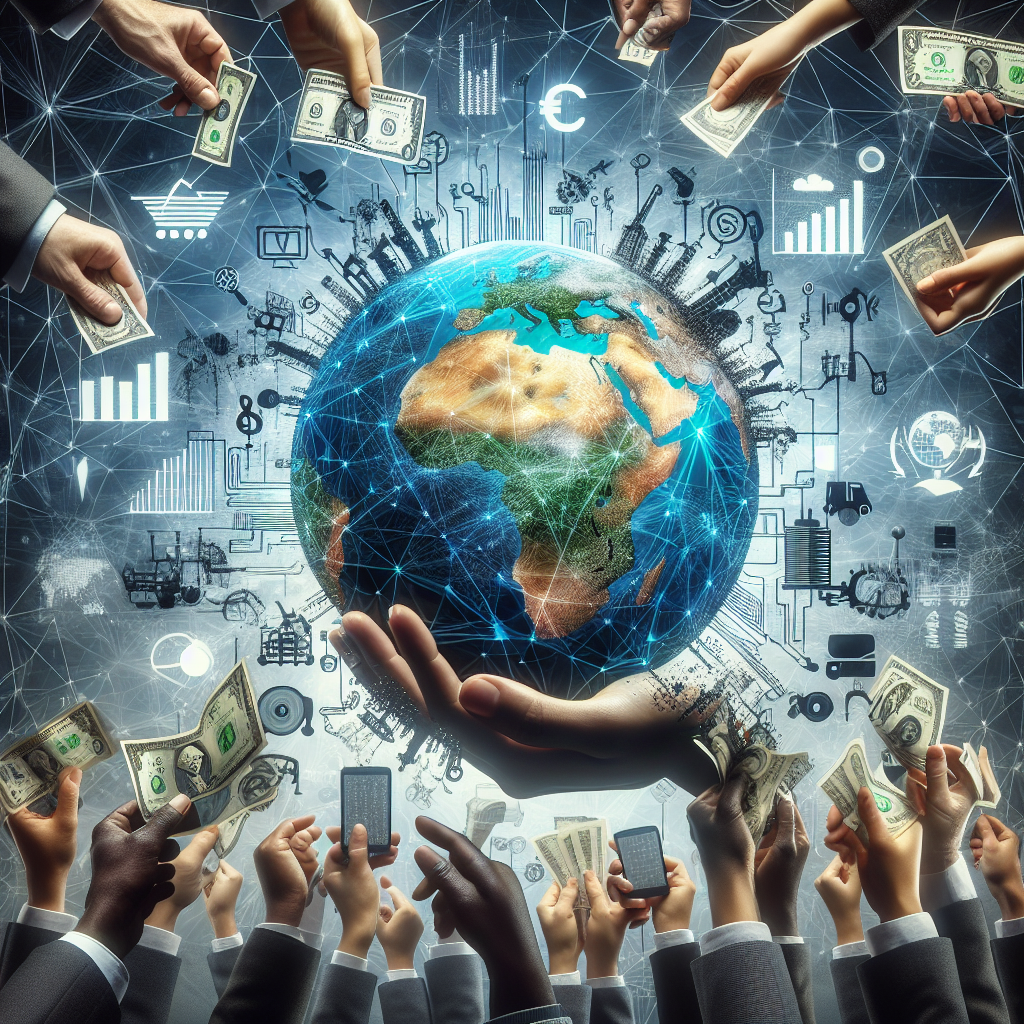Economic globalization, also known as global trade or global market, refers to the interconnectedness of the world’s economies through the exchange of goods, services, capital, and information. It has been a major driving force behind the growth and development of economies around the world over the past few decades. While there are some concerns about the negative aspects of economic globalization, such as income inequality, loss of jobs, and environmental degradation, there are also numerous benefits that can be attributed to this phenomenon. In this article, we will explore some of the key benefits of economic globalization.
One of the most significant benefits of economic globalization is the expansion of markets. By opening up borders and facilitating trade between countries, businesses are able to access a much larger customer base than they would have otherwise. This leads to increased competition, which in turn drives innovation and efficiency, ultimately benefiting consumers through lower prices and a wider range of goods and services to choose from.
Another important benefit of economic globalization is the flow of capital across borders. This allows businesses to invest in new markets, create jobs, and spur economic growth. Foreign direct investment (FDI) has played a crucial role in the development of many emerging economies, providing them with much-needed capital, technology, and expertise to grow and diversify their economies.
Furthermore, economic globalization has led to the transfer of technology and knowledge between countries, which can help bridge the development gap between advanced and developing economies. This helps developing countries to leapfrog traditional stages of development and adopt new technologies and practices that can improve their productivity and competitiveness in the global market.
Additionally, economic globalization has helped to reduce poverty and improve living standards in many parts of the world. By creating opportunities for employment, entrepreneurship, and education, globalization has lifted millions of people out of poverty and provided them with access to better healthcare, education, and basic necessities.
Moreover, economic globalization has fostered cultural exchange and understanding between countries, leading to greater diversity and tolerance. As people and goods move freely across borders, they bring with them their traditions, cuisines, and ideas, enriching the cultural fabric of societies around the world.
In summary, the benefits of economic globalization are numerous and far-reaching. From expanding markets and facilitating trade to promoting innovation and economic growth, globalization has played a key role in shaping the modern world economy and improving the lives of billions of people.
FAQs:
Q: Does economic globalization only benefit developed countries?
A: No, economic globalization benefits both developed and developing countries. While advanced economies may benefit from access to new markets and cheaper labor, developing countries can benefit from increased capital flows, technology transfer, and job creation.
Q: Does economic globalization lead to job losses in developed countries?
A: While some jobs may be lost due to outsourcing and competition from foreign firms, economic globalization also creates new opportunities for employment in industries that benefit from increased trade and investment.
Q: Is economic globalization responsible for income inequality?
A: While economic globalization can exacerbate income inequality in some cases, it can also reduce poverty and improve living standards for many people. Policies that address income inequality and promote inclusive growth can help mitigate the negative impacts of globalization.
Q: How can countries benefit from economic globalization?
A: Countries can benefit from economic globalization by opening up their markets, attracting foreign investment, fostering innovation, and investing in education and infrastructure to enhance their competitiveness in the global economy.
